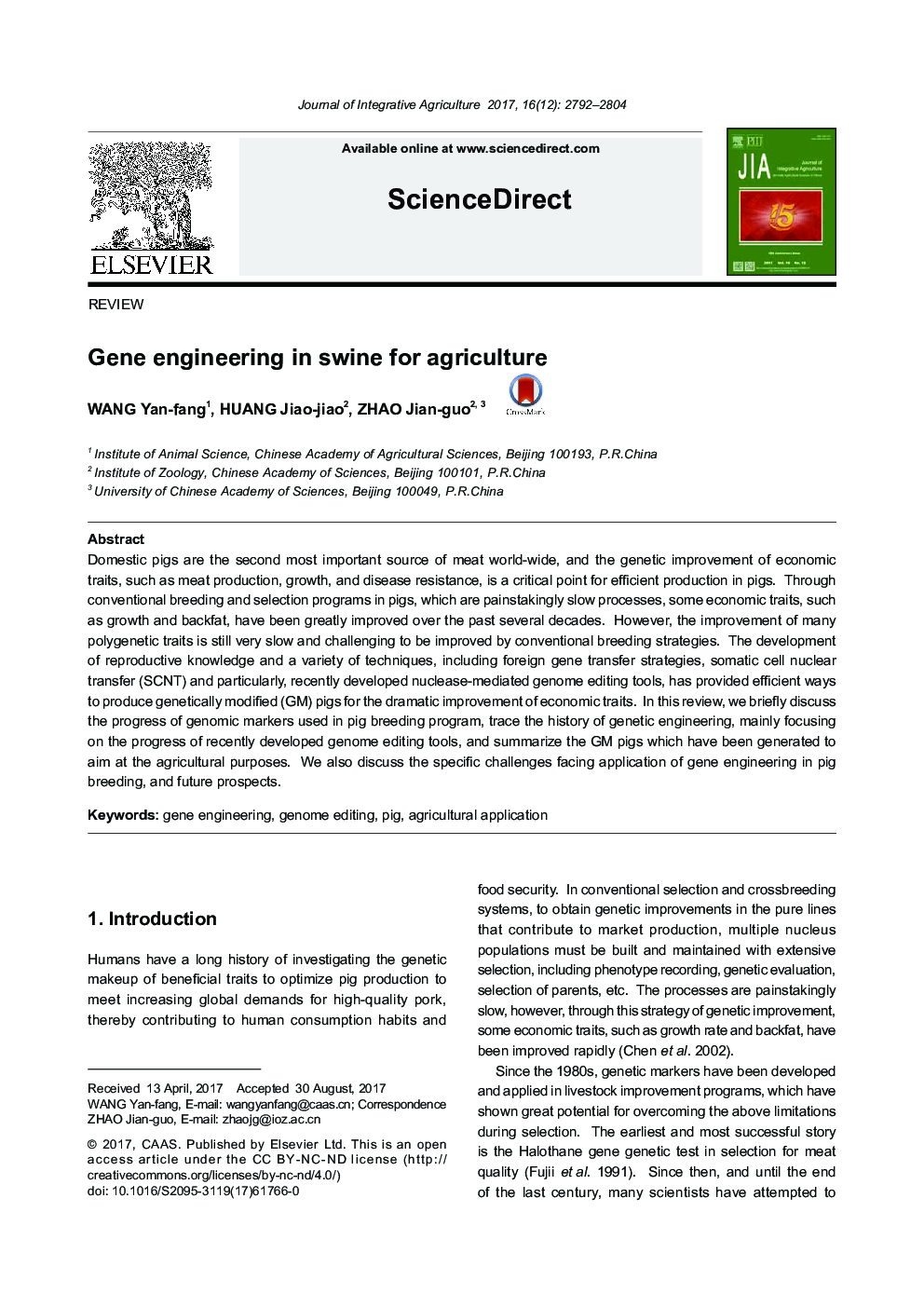| کد مقاله | کد نشریه | سال انتشار | مقاله انگلیسی | نسخه تمام متن |
|---|---|---|---|---|
| 8875777 | 1623702 | 2017 | 13 صفحه PDF | دانلود رایگان |
عنوان انگلیسی مقاله ISI
Gene engineering in swine for agriculture
ترجمه فارسی عنوان
مهندسی ژنتیک در خوک برای کشاورزی
دانلود مقاله + سفارش ترجمه
دانلود مقاله ISI انگلیسی
رایگان برای ایرانیان
کلمات کلیدی
مهندسی ژن ویرایش ژنوم، خوک، برنامه کشاورزی،
موضوعات مرتبط
علوم زیستی و بیوفناوری
علوم کشاورزی و بیولوژیک
علوم کشاورزی و بیولوژیک (عمومی)
چکیده انگلیسی
Domestic pigs are the second most important source of meat world-wide, and the genetic improvement of economic traits, such as meat production, growth, and disease resistance, is a critical point for efficient production in pigs. Through conventional breeding and selection programs in pigs, which are painstakingly slow processes, some economic traits, such as growth and backfat, have been greatly improved over the past several decades. However, the improvement of many polygenetic traits is still very slow and challenging to be improved by conventional breeding strategies. The development of reproductive knowledge and a variety of techniques, including foreign gene transfer strategies, somatic cell nuclear transfer (SCNT) and particularly, recently developed nuclease-mediated genome editing tools, has provided efficient ways to produce genetically modified (GM) pigs for the dramatic improvement of economic traits. In this review, we briefly discuss the progress of genomic markers used in pig breeding program, trace the history of genetic engineering, mainly focusing on the progress of recently developed genome editing tools, and summarize the GM pigs which have been generated to aim at the agricultural purposes. We also discuss the specific challenges facing application of gene engineering in pig breeding, and future prospects.
ناشر
Database: Elsevier - ScienceDirect (ساینس دایرکت)
Journal: Journal of Integrative Agriculture - Volume 16, Issue 12, December 2017, Pages 2792-2804
Journal: Journal of Integrative Agriculture - Volume 16, Issue 12, December 2017, Pages 2792-2804
نویسندگان
Yan-fang WANG, Jiao-jiao HUANG, Jian-guo ZHAO,
